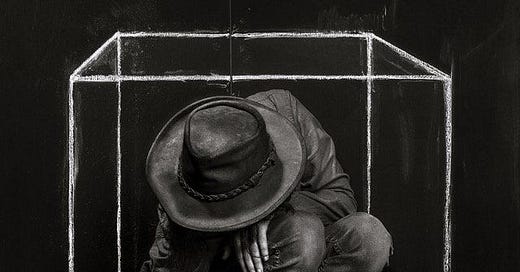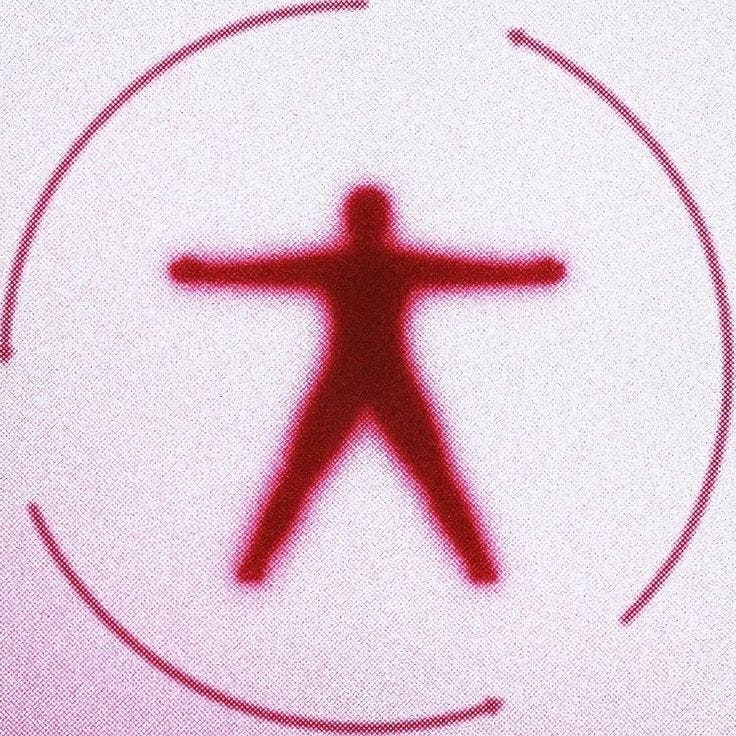Don’t talk to me about time. I have known days that pass like flares, hours that drip like decades and seconds that last eternities. I have built my life around the importance of an hour, forgotten embarrassments that stretched several months, anticipated occasions lasting mere instants. Time is a mirage. A Fata Morgana slipping ever more ahead, beyond, away. In our mind, it may approach forever closer, but in truth, it is most elusive, most reluctant to applying to rules.
I was caught once like an insect in the web of a woman’s glance, in a hallway, for mere seconds that stretched like hours behind the eye of my soul. I blinked once to discover several years shape shift like blurry photographs inside a view-master1. I once smelled the aroma of rye bread in grey-linoleum corridors of an institution and transported—faster than the sound of a click, to the days of my thirteen-year-old self in a dark London classroom. I am a victim to the epochs which lay buried beneath my skin, which pull me this and that way, which fade, like blueberry-stained pages, the remnants of what I once believed to be true. And still, I maintain the conviction that planning ahead remains a wise move, that anticipating future events is a productive task that deserves to be outlined, mapped out, arranged.
There is a level of self-deception involved to constructing—in painstaking detail—a plan of action. A certain disrespect even, for the shifting tectonic plates within our lives and the larger world. At face value, planning is a noble, ambitious, self-serving exercise in personal development, yet what if that’s a lie? What if planning is another path towards idleness, towards disappointment?
The greatest moments of our lives are never planned. They are the result of serendipitous occurrences, occasions which coincide in ways that seem incomprehensible, unexplainable, and similarly, pre-packaged as if designed especially for us. For lack of a better term, it’s the magic in life that reveals the most fortuitous turning points. Planning in and of itself is completely antithetical to living attuned to serendipity. It constricts our openness to wonder.
One of my favourite scenes in the world-renowned wizard series, Harry Potter, is the moment whereby Harry drinks Felix Felicis, liquid luck— to obtain a vital, deeply buried memory from a paranoid Professor Slughorn. Causing worried surprise to his friends, Harry drinks the potion and, instead of going straight to the man’s office—decides to go for a walk. His disposition shifts from that of purposeful desire to curious wonder. He stops to smell the roses, so to speak, so that when he happens to meet the Professor on the way, he’s indifferent to seeing him. The dynamic between the two is no longer that of transaction, instead, his lack of motive disarms Slughorn. There is a lightness to Harry’s behaviour that doesn’t frantically try to achieve, but merely follows the curiosity occurring to him in the moment. There is a sense of confidence too, that no matter what happens, he will obtain what he seeks, he finds himself in no rush.
There is a great sense of power we can elicit by drinking our own liquid luck. You may read this as sheer ridicule but I would be lying if I said I had never taken it myself. A few years ago, when I was working on a documentary film on a dancer, I aimed to obtain the very personal, somewhat painful experiences of my subject during one of the recorded interviews. Previously, I found her to be closed off about personal subjects—with good reason— the anecdotes were painful memories. Trust plays a big factor in drawing out such information, yet so does a lightness of circumstance.2 Before meeting her, I drank my very own ‘Liquid Luck’ and imagined the world different after swallowing it.3 I walked with a lighter step in my foot, smiled at passerby’s, and made conversation with strangers for no real reason except to spread my good mood. The world opened up to me like an oyster. I arrived at her house with no sense of anxious desire, but instead, grateful presence. During the interview, I went off-topic, subverted any kind of plan I would have otherwise written down, and discovered that I didn’t have to press for what I came for. In the rhythm of our conversation, she shared stories that had previously been locked away inside her heart. I found myself completely present, with no eyes to the past, no thoughts for the future, attuned entirely to the infinity of every choice that appeared before me in the now.
Why couldn’t it always be like this?
What we must do, what we always seem to have to do— is simply that which lies under our nose. It seems to be the hardest thing. We are a culture obsessed with what’s next, we continuously preempt what the next hour brings. It becomes a form of hiding, a form of lying to ourselves. Like anticipating the ocean’s current as we submerge into the river, we become clouded by anticipation.
Planning is a bit like working yourself into a cage. Despite the promise the plan may fulfil, another dozen interesting paths get locked off. The life of the artist, or any human at all, can benefit from dexterity; from the grace that comes from being light on our feet. Planning burrows us into a fixed place, even if it’s at the peak of some noble summit. Perhaps much more useful is intention, for no matter what life throws our way, our intention always remain in our control. Intention is a personal choice fulfilled by how we act. Intention empowers. Planning creates rigidity.
It can be helpful not to have an obsessive grip on the future, but rather, to trust in the unfolding of life. Living with intention is like having a compass instead of a cage. With an eye on our compass, we remain aligned yet open, with a looseness that invites magic to dazzle its way into life.
Magic always slips in unannounced— like sunlight through a window, we don’t have to force its arrival, we just have to stay open enough to recognise when it arrives. When we trust in intention, the world responds with a gentle rearrangement of its pieces, somehow offering us exactly what we need. Perhaps life’s riches belong not to the meticulous planner but to the open-hearted wanderer. By surrendering our plans we may lose a sense of perceived control, but we gain something greater: the ability to truly live.
All of it by the way, in service of creating the best possible creative project.
Funnily enough, the form of my own liquid luck was not alcohol. Sometimes, a placebo is all you need.








Thanks for reminding us to open our heart filled with intention and we will be rewarded
Very well written. Love the Harry Potter reference. It is, indeed, hard in this world to live without a plan. I have found the key to living "in the moment," for lack of a better term, is to live more simply--to realize the good life is not more, but less. People don't see, by no fault of their own (it's what the world teaches us to believe), that they don't need all these things. A big house, a nice car, expensive clothes, and so forth . . . I'm not saying we've gotta be homeless (although I do plan for the next 5+ years to live the "van life"), but that our desire for more thrusts into our minds these worries that undermine our inner peace and ability to live a good life. In your 20s and 30s, your job is not to "build a career" and make a bunch of money but instead to get to know yourself and figure out what exactly it is you love to do. The money will come in due time.